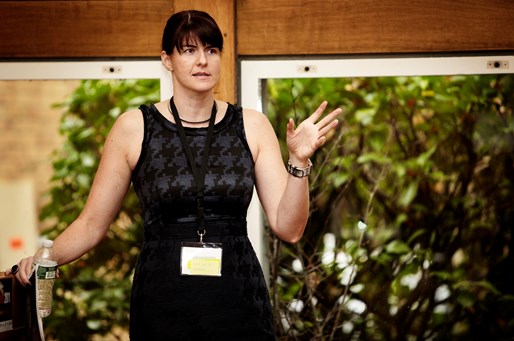Former Olympic swimmer questions use of funds in FINA

Nikki Dryden, a former Olympic swimmer, would like to see more current athletes “coming out against being used as a commodity”. Photo: Tine Harden
05.10.2011
By Marcus HoyAt what point do sports’ governing bodies stop serving the athletes they represent, and start to serve themselves? Nikki Dryden, a New York-based human rights attorney and former Olympic swimmer, told Play the Game that the actions of world swimming’s governing body appear to put it firmly in the latter category.
When Dryden was enjoying a successful swimming career, she had little time to focus on the financial affairs of FINA. However, since she ended top level competition, she has seen her sport’s governing body become richer, more secretive and less accountable.
FINA has 22 full time staff, and its administrative budget for 2008 was $3.3 million, she pointed out. However, the organisation’s increasingly hefty revenues are not being reflected in its funding for development programmes and provision of prize money.
In 2005, FINA ended the year with excess funds of USD 9 million, but spent just USD 300,000 on development programmes, Dryden said. In some cases, she added, basic safety safeguards, such as equipping lifeguards with binoculars, are being compromised, while at the same time, athletes are increasingly being forced to wear the logos of FINA and its sponsors.
In conclusion, she said she would like to see swimmers and other athletes “coming out against being used as a commodity”. Unfortunately, athletes involved in the reform of sport are usually retired. “When you are involved in competition you don’t have time to see the bigger picture,” she said.





